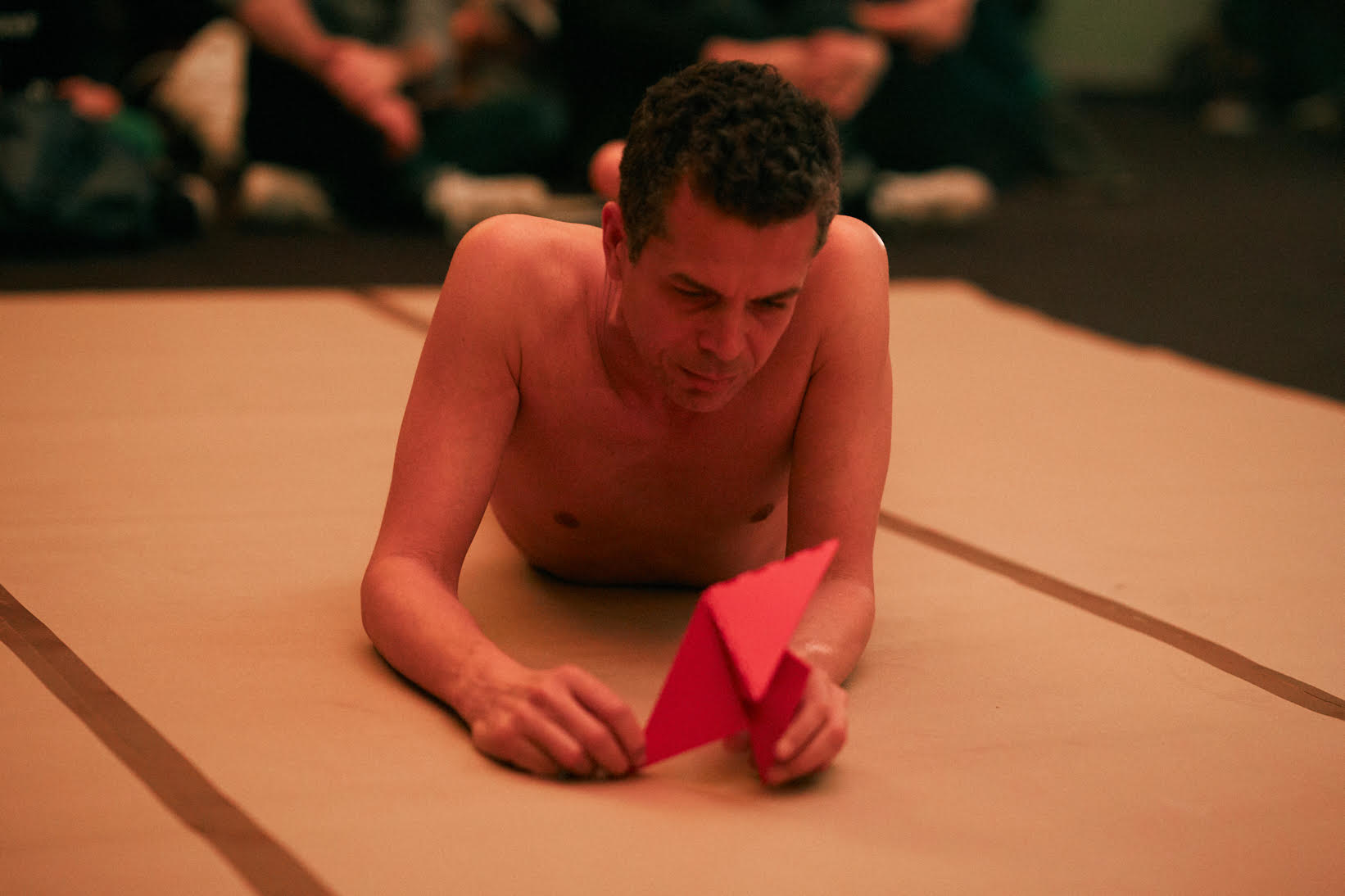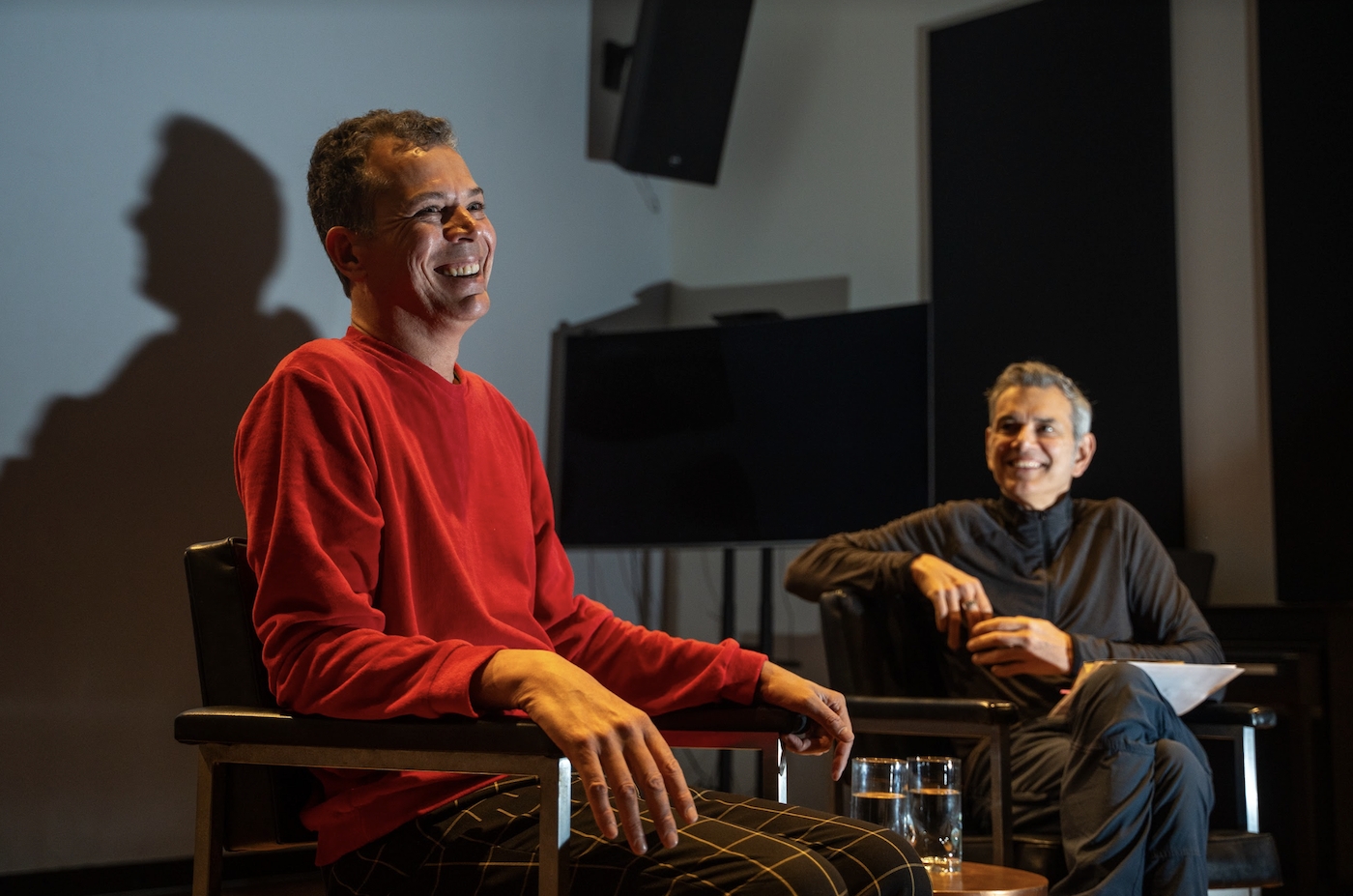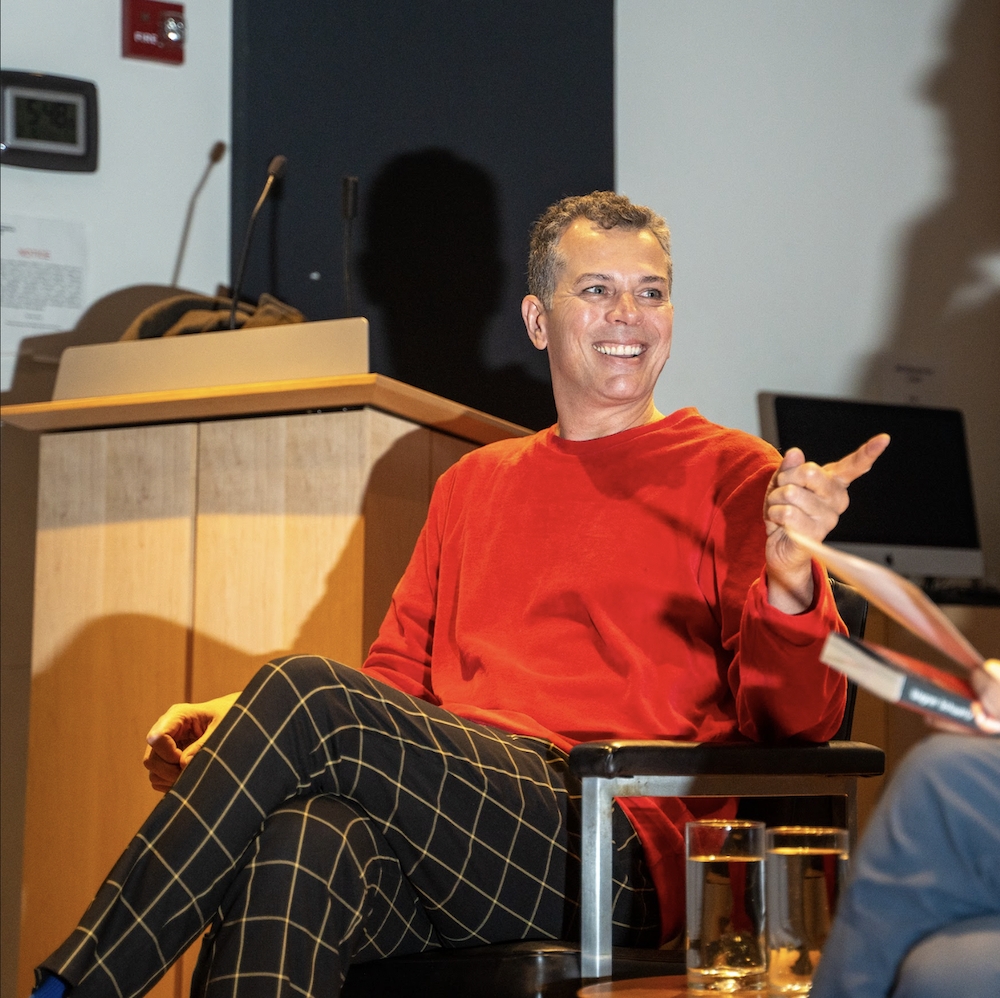The Nakedness of the Imperfect Copy — a conversation between Wagner Schwartz and André Lepecki

In September 2017, after performing his solo work “La Bête” (“The Animal” or “The Beast”) in several international art venues since 2005, the Brazilian dancer and choreographer Wagner Schwartz saw himself at the epicenter of brutal attacks from the extreme right in Brazil, after presenting his famous work at the 35th Brazilian Art Panorama, at MAM-SP (the Museum of Modern Art of São Paulo). Wagner, as well as his close family and friends, were threatened to death; the curators were summoned under duress to a Senate hearing in Brasília; and the performance became the excuse for the unleashing of rabid and coward attacks against LGBTQIA+ people in Brazil—animating with renewed homo- and trans-phobic energy the candidacy Jair Bolsonaro to the presidency of Brazil.
Wagner Schwartz will engage in a conversation with André Lepecki about this piece, the controversy in 2017, the relation between performance, dance and the political, but also about his broader artistic work as one of the most influential Brazilian choreographers working today in the eve before presenting “La Bête” at NYU’s Skirball as part of Queer New York International Arts Festival curated by Zvonimir Dobrovic.
BIO:
After completing a Bachelor of Arts, Wagner Miranda Schwartz (Rio de Janeiro,1972) began to engage in choreographic research with various experimentation groups in South America and Europe. Author of 13 performances since 2003, he has received, among others, the APCA Award 2012 (by the Association of Art Critics of São Paulo) of the "Best artistic project" with the performance Piranha and was winner of the program Rumos Itaú Cultural Dance in 2000, 2003, 2009 and 2014. In 2018, his first novel, Never together but at the same time, was translated into French with the playwright Béatrice Houplain and published by Editora Nós. In 2021, he became resident at the Cité International des Arts, winner of the program established by the Daniel and Nina Carasso Foundation. In 2022, the author and performer was invited by ICORN (International Cities of Refuge Network) to participate at a PEN International residency in Antwerp (PEN Vlaanderen)—supported by a grant from the Open Society Foundations. He lives in Paris.

Wagner Schwartz and André Lepecki
